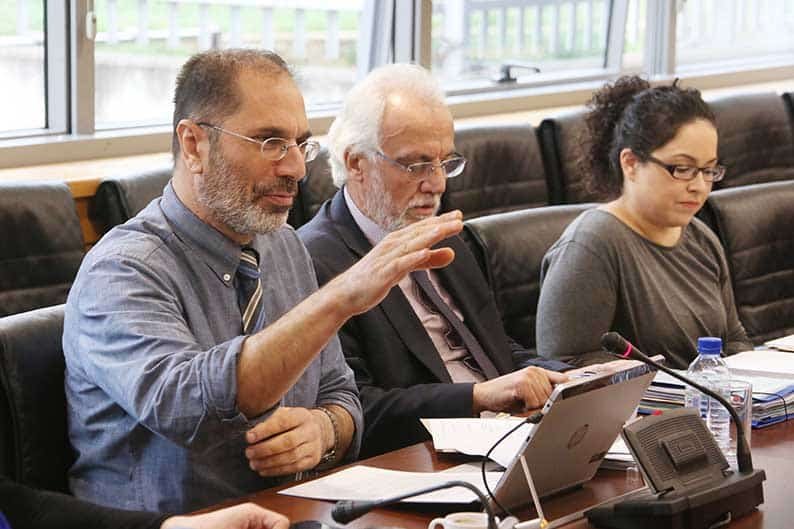The government has gone ahead with the preparation of the constitutional reform it had proposed for the state legal service and the audit office, with Justice Minister Marios Hartsiotis saying that the bills would be approved by the council of ministers by the end of September. The idea is for the two necessary constitutional amendments to be carried out in parallel, although the procedures would be different.
Hartstiotis explained that the bill for the legal service, which will end the dual role of the attorney-general as the state’s legal advisor and public prosecutor as well as introduce a level of accountability for decisions taken by the attorney-general, would not be subject to consultation. It would undergo legal processing by the legal service and be submitted to the legislature for approval. In the case of the audit service bill, it would be subject to consultation and undergo legal processing before it goes to the legislature.
These are major reforms undertaken for different reasons, although Hartsiotis said they were part of modernisation. In the case of the legal service, the reform had been a long-standing recommendation by the European Commission, which had raised the matter of the attorney-general’s responsibilities in its latest EU Rule of Law report. The audit office reform was triggered by the auditor-general Odysseas Michaelides, who acted as if there were no boundaries to his powers and that his office allowed him to interfere in all matters, including pursuing personal vendettas against ministers, the attorney-general and other state officials.
The proposed reform envisages the appointment of a council to monitor the audit office and to approve its reports before these are released, but no details have been given. It is another way of exercising control over Michaelides, if the supreme constitutional court rejects the application for his dismissal, for inappropriate behaviour and he remains in his post. A decision on the matter is expected next month, but it is irrational for an independent state institution to be placed under the control of a committee – if this is the government’s objective – because the official in charge has been consistently ignoring the limits of his powers.
Had there been a legal limit to the years an independent state official was entitled to stay in a post the problem with Michaelides would have solved itself. If a president is restricted to two five-year terms in office the same rule should apply to all independent state officials – nobody should remain in a post for longer than ten years. Such a provision should be included in the bills prepared by the government because nobody deserves to stay in the same state post until retirement, as renewal is imperative at all levels of government.
The audit office spokesman, Marios Petrides, criticised the government for not engaging in any consultations with the auditor-general about the bill which they would oppose. Having a supervisory council above the audit office was unheard of, said Petrides and they would appeal for the support of the political parties in opposing it. Much will depend, we suspect, on the decision of the supreme constitutional court, which is expected before the council of ministers approves the reform bills.







Click here to change your cookie preferences